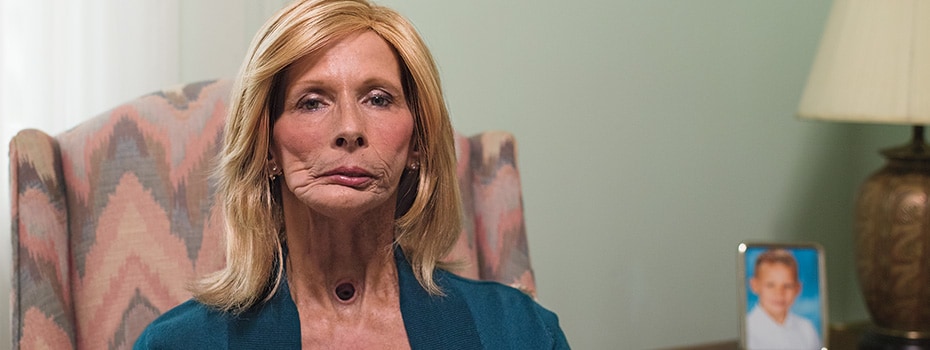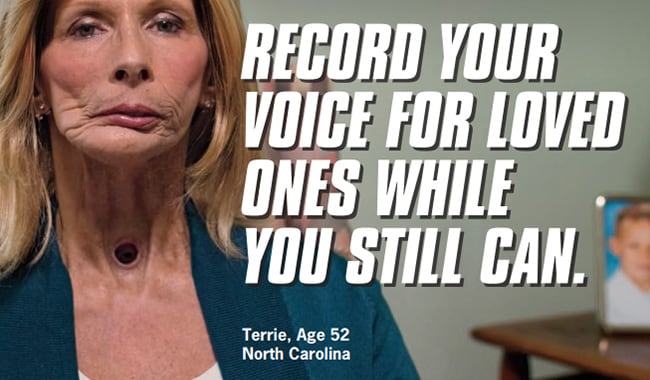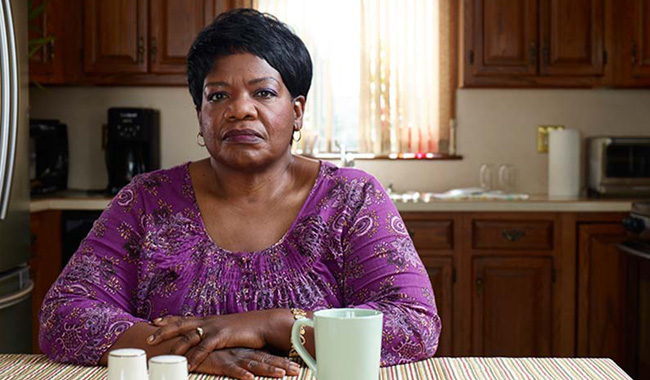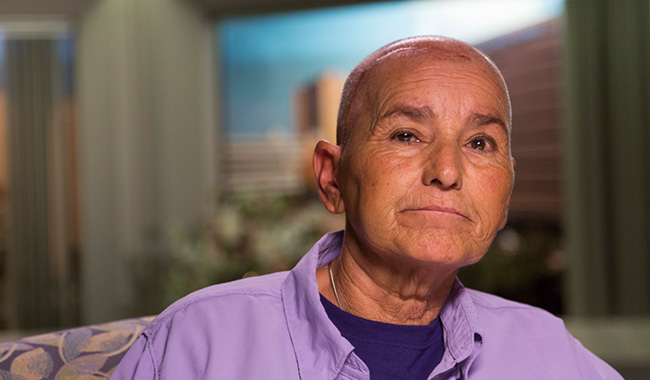Terrie H.’s Story

In high school, Terrie was a pretty cheerleader who competed on the cheer circuit. Her father smoked, and with more and more of her friends smoking, Terrie soon found herself lighting up in social settings. Eventually she was smoking up to two packs a day.
In 2001, at the age of 40, Terrie was diagnosed with oral cancer, and later that same year, with throat cancer. Doctors informed her that they would need to remove her larynx. It was then that she quit smoking for good. Terrie spoke with the aid of an artificial voice box that was inserted in her throat. She continued to battle cancer with a strong, positive spirit. Terrie died in 2013 at age 53 from smoking-related cancer.
Persons with disabilities experiencing problems accessing these videos should contact CDC-INFO at CDC-INFO email form: https://www.cdc.gov/info, 800-232-4636 or the TTY number at (888) 232-6348 and ask for a 508 Accommodation PR#9342. If emailing please type “508 Accommodation PR#9342” without quotes in the subject line of the email. Please include the URL of the site in the Subject line of your email request that you would like to access.
View more Tips videos sorted by name, disease and specific groups
Terrie H.’s Biography
In high school, Terrie was a pretty cheerleader who competed on the cheer circuit. Her father smoked, and with more and more of her friends smoking, Terrie soon found herself lighting up in social settings. “It was the cool thing to do,” she said.

She eventually was smoking up to two packs a day and started feeling the effects of tobacco at age 25—a sore throat that never seemed to go away. In 2001, at the age of 40, Terrie was diagnosed with oral cancer. As she recalled, “I had a sore in my mouth and had to go through all these grueling radiation treatments. It was awful.”
Terrie continued to smoke throughout her radiation treatments. “I didn’t think I had to quit. The radiation was getting rid of the cancer, so I could still smoke,” she said.
Later that same year, Terrie was diagnosed with throat cancer. It was then that she quit for good. The doctors informed her that they would need to remove her larynx. From then on, Terrie spoke with the help of an artificial voice box that was inserted in her throat. “This is the only voice my grandson knows,” she said. “I miss being able to sing lullabies to him. When children ask me why I talk like this, I tell them it’s because I used to smoke cigarettes. Don’t ever smoke.”
Terrie welcomed three grandchildren into her life. Yet, one concern remained for Terrie, “My fear now is that I won’t be around to see my grandchildren graduate or get married.”
Terrie’s family was by her side through the ups and downs of her illness. Her daughter, Dana, described how painful the experience was for their family. “It’s been very difficult for the family because you go through everything they go through,” Dana explained. “Maybe not in the same way, but you’re still there.”
Terrie worked tirelessly to educate young people about the dangers and consequences of tobacco use. She lent her time and support to several health and advocacy organizations. “I’m busier now than before I got cancer,” Terrie said about her life over the last few years. Unfortunately, the cancer returned many times in the years after Terrie was first diagnosed. Terrie died in 2013 from smoking-related cancer. She was 53.
Through the Tips From Former Smokers® (Tips®) campaign, Terrie wanted to encourage young people to never start smoking. “If you don’t start, you never have to worry about stopping,” she said. She believed that if she could prevent just one person from smoking, then she had done something great. That belief is shared by Dana, who carries on her mother’s important work with the Tips campaign to ensure that Terrie’s message makes a difference even after her death.
In May 2013 Terrie was awarded the Surgeon General’s Medallion, one of the highest honors in public health, for her work to encourage people to quit smoking or not to start.
In her last days, Terrie continued her work to show people the real consequences of smoking. “I believe that for me and for literally millions of other Americans, Terrie put a face to the people killed by smoking each year in the U.S.,” said Dr. Tom Frieden, CDC’s director from 2009 to 2017.














